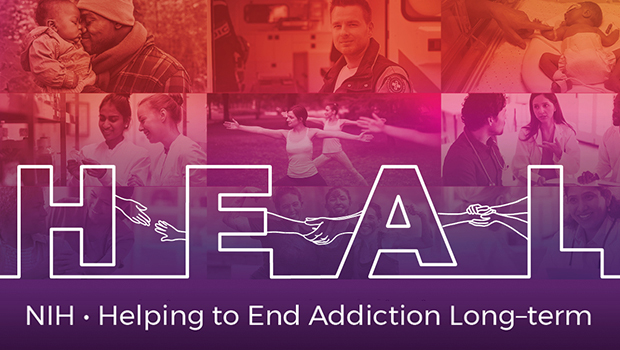NIH awards KPWHRI 3 HEAL grants totaling over $15 million

Drs. DeBar, Bradley, and Sherman will lead projects in major new initiative to tackle national opioid crisis.
SEATTLE, October 1, 2019—The National Institutes of Health has awarded three Helping to End Addiction Long-term Initiative (NIH HEAL Initiative) grants to Kaiser Permanente Washington Health Research Institute, or KPWHRI.
“We are excited to have these opportunities to address this public health emergency—to greatly improve access and availability to evidence-based behavioral treatment for chronic pain; to provide more comprehensive services for those struggling with opioid use disorder and related problems; and to strengthen the evidence base for safer approaches to chronic pain treatment in older adults,” says Lynn DeBar, PhD, a senior investigator at KPWHRI who is a principal investigator on all three of the institute’s NIH HEAL Initiative grants:
- Patient-centered team-based primary care to treat opioid use disorder, depression, and other conditions: Dr. DeBar and Katharine Bradley, MD, MPH, will lead this five-year, $12,769,318 pragmatic trial of an innovative, scalable model of care management—provided by a nurse over the phone—for primary care patients with opioid use disorder and depression at Kaiser Permanente Washington and, through the University of New Mexico, at clinics in New Mexico. Other collaborating institutions are Harborview Medical Center, Kaiser Permanente Northwest, and Boston Medical Center (grant #UF1MH121949 from the National Institute of Mental Health, or NIMH).
- Tailored non-pharmacotherapy services for chronic pain: testing scalable and pragmatic approaches: Dr. DeBar will lead this five-year project to plan a trial to determine the effectiveness, costs, and factors for providing cognitive-behavioral therapy, or CBT, for chronic pain online and by phone—two telehealth methods that could make it more available to people in medically underserved and rural areas. In-person CBT has been proven effective as a treatment that could be used instead of drug treatments such as opioids for the one in 10 U.S. adults with high-impact chronic pain that limits life and work activities. This project begins with a $1,344,889 milestone-driven planning year, and if successful, transitions to the four years of the trial (grant #UG3AG067493 from the National Institute on Aging).
- Pragmatic trial of acupuncture for chronic low back pain in older adults: Karen Sherman, PhD, and Dr. DeBar will lead this four-year pragmatic randomized trial to determine the effectiveness, costs, and factors for implementation of acupuncture for older adults with low back pain in four diverse health systems (Kaiser Permanente Washington, Kaiser Permanente Northern California, Sutter Health, and the Institute for Family Health). This evidence will provide information for Medicare regarding coverage decisions and for individual physicians and patients deciding on a course of treatment (grant #UG3AT010739 from the National Center for Complementary and Integrative Health). This project begins with a milestone-driven $1,280,280 planning year, and if successful, transitions to the three years of the trial.
Additional HEAL awards
Dr. DeBar is also a co-principal investigator on “Effectiveness of an mHealth psychosocial intervention to prevent transition from acute to chronic postsurgical pain in adolescents,” a trial led by Jennifer Rabbitts, MD, ChB, of Seattle Children’s (grant #1UG3NS114858-01 from the Eunice Shriver National Center of Child Health and Human Development). KPWHRI is a potential site for the “Early Phase Pain Investigation Clinical Network—Specialized Clinical Centers,” conducting phase 2 clinical trials and biomarker validation studies for pain conditions (grant #1U24NS115678-01 from the National Institute of Neurological Disorders and Stroke).
Dr. Bradley is a co-principal investigator on some related supplemental HEAL grants from the National Institute on Drug Abuse for “Primary Care Opioid Use Disorders Treatment Trial (PROUD) Economic Analysis Study,” “Determining the Optimal Duration of Buprenorphine Treatment to Reduce the Risk of Relapse, Overdose, and Mortality,” “Developing a Prescription Opioid Registry Across Diverse Health Systems,” and “Opioid Use Disorder (OUD) Phenotyping Feasibility for Clinical Trials.”
Gregory Simon, MD, MPH, is a co-principal investigator on a NIMH supplemental grant for “New Strategies to Prevent and Treat Opioid Addiction,” a project initially funded in 2018 and led by Henry Ford Medical Center.
Part of unprecedented national commitment
KPWHRI’s awards are among the 375 grant awards across 41 states, for $945 million, which the NIH made in fiscal year 2019 to apply scientific solutions to reverse the national opioid crisis. The NIH launched the HEAL Initiative in April 2018 to improve prevention and treatment strategies for opioid misuse and addiction and enhance pain management. The initiative aims to improve treatments for chronic pain, curb the rates of opioid use disorder and overdose, and achieve long-term recovery from opioid addiction.
“It’s clear that a multipronged scientific approach is needed to reduce the risks of opioids, accelerate development of effective nonopioid therapies for pain, and provide more flexible and effective options for treating addiction to opioids,” says NIH Director Francis S. Collins, MD, PhD, who launched the initiative in early 2018. “This unprecedented investment in the NIH HEAL Initiative demonstrates the commitment to reversing this devastating crisis.”
About the National Institutes of Health (NIH)
NIH, the nation's medical research agency, includes 27 Institutes and Centers and is a component of the U.S. Department of Health and Human Services. NIH is the primary federal agency conducting and supporting basic, clinical, and translational medical research, and is investigating the causes, treatments, and cures for both common and rare diseases. For more information about NIH and its programs, visit www.nih.gov.
About Kaiser Permanente Washington Health Research Institute
Kaiser Permanente Washington Health Research Institute (KPWHRI) improves the health and health care of Kaiser Permanente members and the public. The institute has conducted nonproprietary public-interest research on preventing, diagnosing, and treating major health problems since 1983. Government and private research grants provide our main funding. Follow KPWHRI research on Twitter, Facebook, and LinkedIn, or subscribe to our free monthly newsletter.
About Kaiser Permanente
Kaiser Permanente is committed to helping shape the future of health care. We are recognized as one of America’s leading health care providers and not-for-profit health plans. Founded in 1945, Kaiser Permanente has a mission to provide high-quality, affordable health care services and to improve the health of our members and the communities we serve. We currently serve more than 12.4 million members in eight states and the District of Columbia. Care for members and patients is focused on their total health and guided by their personal Permanente Medical Group physicians, specialists and team of caregivers. Our expert and caring medical teams are empowered and supported by industry-leading technology advances and tools for health promotion, disease prevention, state-of-the-art care delivery and world-class chronic disease management. Kaiser Permanente is dedicated to care innovations, clinical research, health education and the support of community health. For more information, go to: kp.org/share.
healthy findings

Opioids: Encouraging trends and new challenges
Kaiser Permanente Washington led in reducing opioids. We’re now seeing benefits, but there’s more work ahead, writes Dr. Michael Von Korff.


